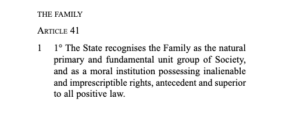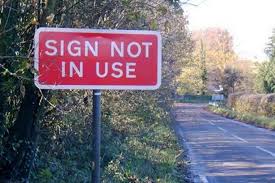This is a post by Sarah Phillimore.
This is the text of a talk I gave at the Bristol Civil Justice Centre on April 15th 2019 as part of a debate entitled ‘We make unnecessary use of care proceedings’.
The situation regarding care proceedings in England and Wales is dire. There are various reports and worries about the ever increasing number of care proceedings with no corresponding increase in identification of those children who actually suffer harm. The worry from many is that we have created a voracious and possibly unstoppable ‘risk monster’
EDIT – that line should read ‘ever increasing number of section 47 investigations’ rather than care proceedings.
Various senior Judges have warned that the family justice system is close to collapse and cannot sustain this continuing increase in numbers of applications for care orders.
Much of the discussion on and off line from parents and some professionals is in very bleak terms about the sustainability of the system and the harm that it does to those who come within it. Richard Devine commented on Twitter in March 2019:
Sometimes I wonder, in 50 years time, what aspect of the current child protection system will, with retrospection, seem incomprehensible, unethical, absurd?
The answer came swiftly from one Twitter user:
Most of it. Its harms to health, mental health and human well being will be evident and regrettable.
This is a fairly typical exchange. So I can immediately see and understand that the easy and obvious answer to this question is ‘yes’. But, as ever, I think the answer is a more complicated than the question poses at face value. And that’s why I wanted to speak against this motion. Not because I have any naive hopes that my mere rhetoric will sway anyone from their decided view. But in the hopes that you might at least listen and think about some of what I say.
All care proceedings involve failure.
All care proceedings involve failure. It is a failure of at least one of the following 3 things; the very worst cases are a failure of all 3.
- A failure by parents to reach ‘good enough’ standard in their parenting, a failure so serious that it either causes their children significant harm or puts them at serious risk of the same. The degree of blame to be attached to this can vary from ‘none at all’ for those parents with disabilities who did their best, to a very high level of culpability which finds the parent also facing criminal proceedings, for example due to sexual assault or deliberate infliction of physical harm
- A failure by social workers or other professionals to build a relationship pf trust with a parent who is struggling. Or worse than that, professionals who operate from untested assumption and prejudice. Or worse still, professionals who actively mislead by altering documents or lying to the court. I hope that latter example is a very small minority but I accept that even one case a year is one too many
- A failure by the State to provide any sufficient safety net for parents and professionals who are struggling. A failure to provide and maintain support for those with poor housing, mental health struggles etc. A failure to provide safe working environments for professionals, allowing case loads to rise beyond what is sustainable or safe.
Once the case then comes to court, The court system itself often fails to deliver what we know is needed. The procedure is often not quick, efficient or humane. This puts at risk the need to have the right decisions made on the right evidence, which in turn puts in peril the child’s need to have the right placement and the right support identified and provided. Parents are left behind at the end of it, confused, miserable and alone with no further legal support to challenge a decision they may feel is profoundly wrong.
The whole system is predicated on failures. Some of those failures are a shameful indictment of the way our society operates. Other failures are simply a reflection of the inherent frailty of human beings. We could only eradicate those types of failures by going down a road of eugenics and social engineering which only a fanatical and dangerous few would ever advocate.
Because a system ‘fails’ does that make it unnecessary?
I would like to conduct a quick and unscientific poll.
Children are vulnerable. Not all parents can be good enough parents. This isn’t about moral blame. Its about asking hard questions about what we, collectively, agree we should do to protect the most vulnerable members of our society.
- Who in this room thinks that children aren’t at risk of death or serious harm from their parents? Raise your hand. 31 children under 16 were killed by their parents in England and Wales in 2015 – three a month – compared with 23 in 2014.
- Of course, deliberate murder is thankfully rare. But who in this room thinks that the State should step in to protect only those children at risk of being murdered? Raise your hand.
- Who in this room thinks that the State should step in to protect only those children at risk of having their bones broken? Raise your hand.
- Who in this room believes that from the age, say of 0-12 years only a parent can have any authority over the education and health care received by their child? Raise your hand.
Unless ALL or NONE of the hands go up in answer to the last 3 questions, then we have to accept that there is room for disagreement about exactly where the line should be drawn – but the one thing I think we would all agree with – there is a line, somewhere.
EDIT – NO hands were raised. On reflection, it would have been more interesting to ask a question about the more nebulous aspects of threshold, such as emotional abuse. But it was clear that all in the room agreed that children need protection from dangerous parenting.
The journalist Louise Tickle visited Dublin recently and discussed her visit on her Open Family Court website. She made the point that the importance of the family is set out explicitly in the Irish Constitution


This is reflected in many other international and domestic laws and practices. But it cuts both ways doesn’t it? If you are expecting the State to step in and defend the family as a ‘necessary basis’ of social order and ‘indispensable’ to the welfare of an entire nation, then presumably the State must have something to say about those individuals who threaten the sanctity of the family by harming members of it?
Its interesting to note what else Louise Tickle observed. One of the benefits of Ireland’s Child Care Law Reporting Project was that not only did it act to permit scrutiny of state action in interfering with families, it also allowed the public to see just how bad things could get for children
McKittrick also believes that reporting has raised society’s awareness of and sensitivity to child abuse. “Our perception is that the general public have had no idea of the level of misery that these children experience, and we can’t talk about it,” she said.
Conclusions
So no, I don’t believe that we make ‘unnecessary’ use of care proceedings. I do however think that the outcome of these proceedings is moving ever further away from what was hoped for by those who framed the Children Act. We have essentially betrayed the legacy of the Children Act 1989 by removing funding for the support services so essential to its proper operation.
As Professor Jo Delahunty QC commented after her recent lecture to commemorate its 30th birthday
The lack of financial support for community resources [and the] the rise in [applications under] s 31, they are linked. Hence the value in reminding the audience of how the Act was meant to cover community as well as court procedures with access to services, advice and support being embraced within its composite parts . However with limited legal aid for pre proceedings advice for parents , S 20 abuses , legal aid deserts for early (any!) advice in private law , court staff / judges acting as advisors and counsellors and lack of court time as we have judges working to break point: all these deficits are crippling.
Community lack of access to services and legal advice compounds an overwhelmed and overwhelming social care environment staffed by disrespected social workers , often unsupported , and inadequate managerial oversight with little joined up thinking with legal departments. I think every strand is intertwined.
Hence why I thought a reminder of what we should strive at might be timely.
Further reading
Thread of live tweets from the night #FCDebate
Children Act ‘betrayed’ in climate of cuts 16th April 2019 Community Care
You never lose the fear of the knock on the door April 2019 Tortoise Media
Care Proceedings in England: The Case for Clear Blue Water March 2019 Isabelle Trowler

